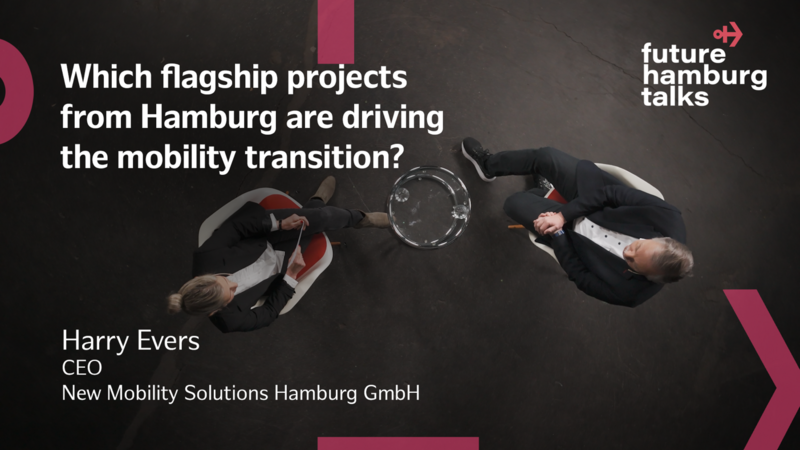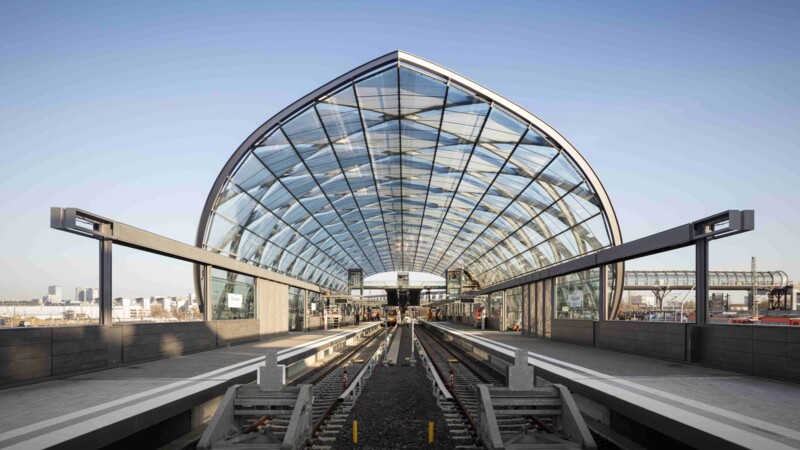The UITP Summit 2025 is largely interactive event and features innovative transport, vehicles and other novelties in addition to the congress and exhibition areas. Top of the agenda is AI for integrating transport safely in fleet and operations management, or in human resources. The "Autonomous Mobility" section will showcase all the latest developments. Technical visits, tours and presentations of various projects will demonstrate the future of mobility. "Radkultur Hamburg", for instance, will show visitors how to combine cycling and public transport effectively. One of Europe's most advanced driverless vehicle projects, which is currently undergoing testing on roads across Hamburg, will be showcased through an ID. Buzz AD test drive at the"'Moia Autonomous Test Ride". A themed tour on "Automation in Transition" will cover driver assistance systems, autonomous buses, on-demand mobility, and accessibility in public transport. The Shared Mobility Soirée offers a glimpse into the future of automated, shared and autonomous public transport. Other highlights include the Mobility Transition Tour aboard an electric bus and offers a glimpse of Hamburg's future mobility.
Hamburg is now hosting the UITP Summit 2025, the world congress of local public transport (LPT), from June 15-18, 2025. More than 400 exhibitors, 2,800 delegates and 10,000 public transport experts from over 100 countries are expected at the congress. The UITP Awards celebrate the most innovative projects in cities and regions across the globe. Organisers of this urban mobility event include the City of Hamburg, Hamburger Hochbahn, MOIA and Hamburg Messe und Congress. The summit will begin with the Mobility Festival on June 14, 2025 in downtown Hamburg. New Mobility Solutions GmbH, a subsidiary of Hamburger Hochbahn, is responsible for executing the event. Events kicked off on June 14, 2025 with a festival on transport in downtown Hamburg.
Experience mobility of tomorrow at UITP
Startups to present transport offers
Twenty-five startups including 3D Spark, MUVN, Moviro and Urb View, all of which are based in Hamburg, will pitch their business models in UITP's startup area from June 16-18, 2025. 3D Spark has developed a software-as-a-service (SaaS) platform that improves manufacturing and industrial procurement. The startup recently raised EUR 2 million in a seed round. MUVN, on the other hand, offers seamless, sustainable mobility solutions via its platform that links up modes of transport. Moviro also develops software solutions for transport while Urb View's platform allows cities and boroughs to analyze, plan and optimize transport offers in their region.
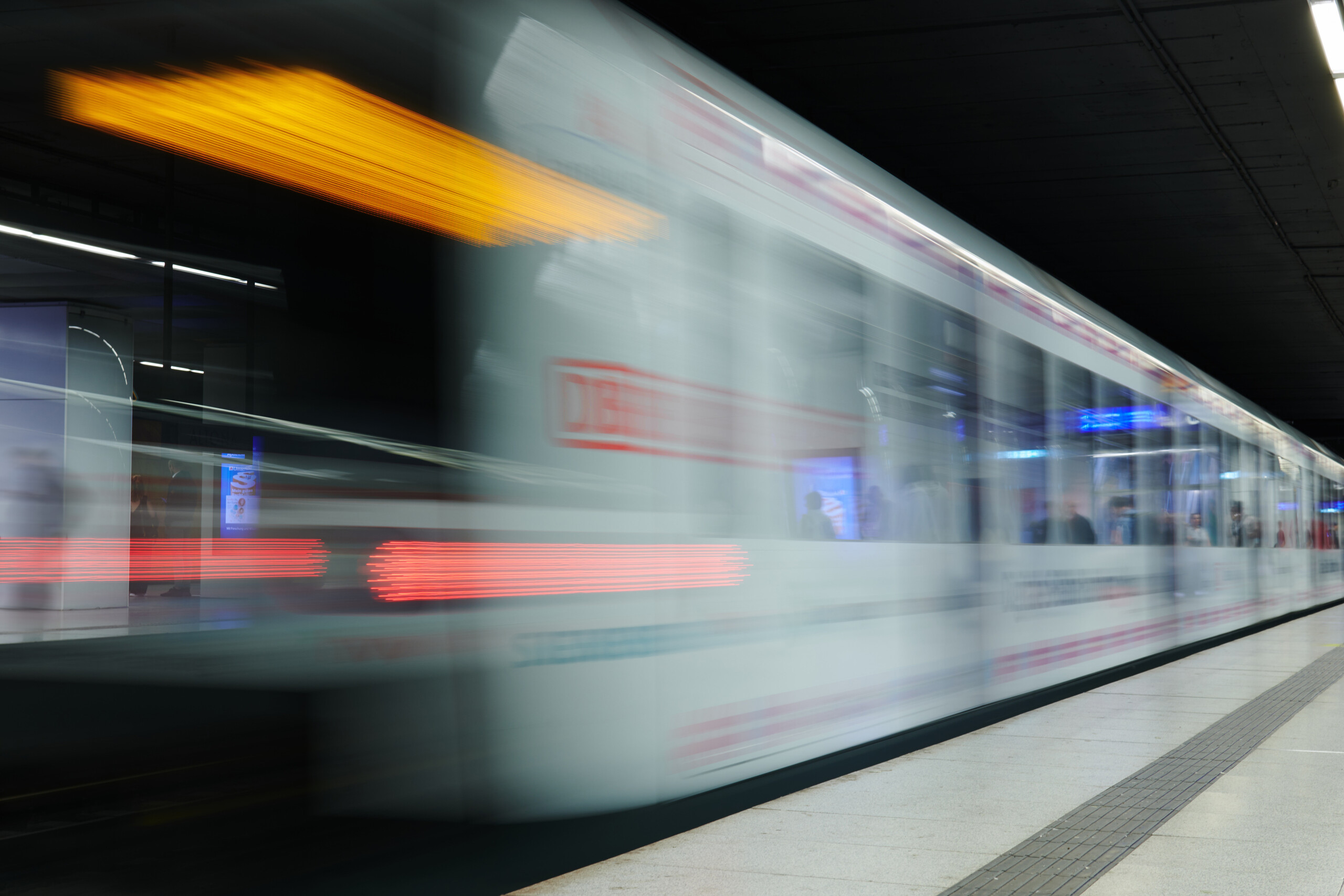
Flagships of public transport
"A transformation on our roads requires a change of mindset, a change in behaviour, and increased co-operation,“ said Harry Evers, Managing Director of New Mobility Solutions GmbH. As one of Europe's leading cities in the field of intelligent and sustainable mobility, Hamburg and its metropolitan region are showcasing 17 flagship projects that showcase the full range of mobility transition, from electrification and digitalisation initiatives to large-scale construction and urban planning innovations. One such project is the "ALIKE“ initiative in which MOIA, the Volkswagen Group's ride-sharing company, is collaborating with five partners to deploy driverless e-shuttles across Hamburg. Around 37 square kilometres of the city will become a test area for autonomous ridesharing this summer. This will make Hamburg the first European city to have 20 driverless vehicles in circulation, which can be booked on the HVV Switch and MOIA apps.
The "U-Bahn 100", on the other hand, aims to extend the U2 and U4 underground lines to achieve a 100-second interval. From 2026, trains with minimum intervals and a maximum capacity will run across the city on the U5 line. The new U5 line is the latest addition to the Hamburg Metropolitan Region's underground network. By 2030, a fully digitalised S-Bahn network will be created with "Digital S-Bahn Hamburg 2.0": AI-supported control technology for more efficient and punctual rail operations. The bus fleet is also set to be fully electrified by 2030. Additionally, almost 700 fully electric taxis are now on roads across Hamburg, marking a milestone for the "Future Taxi" project. The "Ahoy" project, on the other hand, aims to automate Hamburg's on-demand services and integrate autonomous and manual shuttles into public transport with a focus on accessibility.

Mobility transition by 2030
Hamburg organised the 2021 Intelligent Transport Systems World Congress (ITS), one of the largest congresses in its 35-year history, with over 13,000 delegates, 4,000 visitors on Public Day and 400 exhibitors and is now continuing the ITS strategy. The aim is to achieve a transition to sustainable mobility by 2030, improve traffic flow, improve road safety, and reduce the environmental impact of traffic. The overarching political goal is to slash CO₂ emissions by 55 per cent over levels in 1990 through e.g., the "Hamburg-Takt" strategy. The proportion of walking, cycling, and all forms of collective and shared mobility is set to increase to 80 per cent by 2030. The goal is for a mobility service to be accessible within a five-minute radius by 2030. Hamburg will also host the UITP summit in 2027.
mm/sb/pb
Sources and further information
More
Similar articles
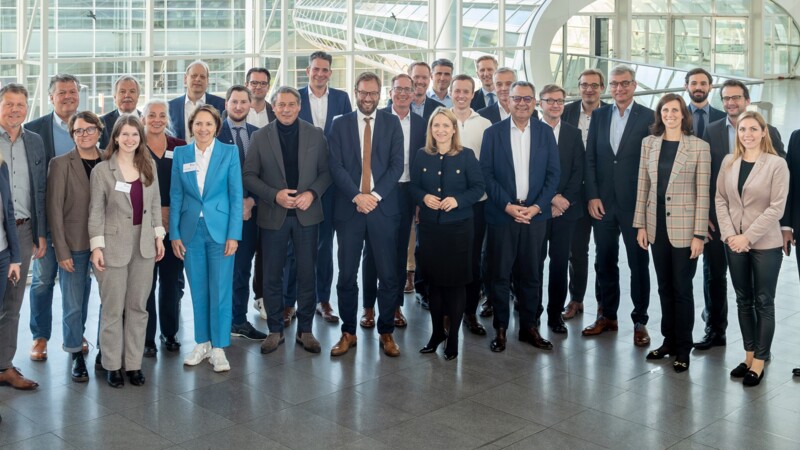
Hamburg unveils concept for UITP 2025
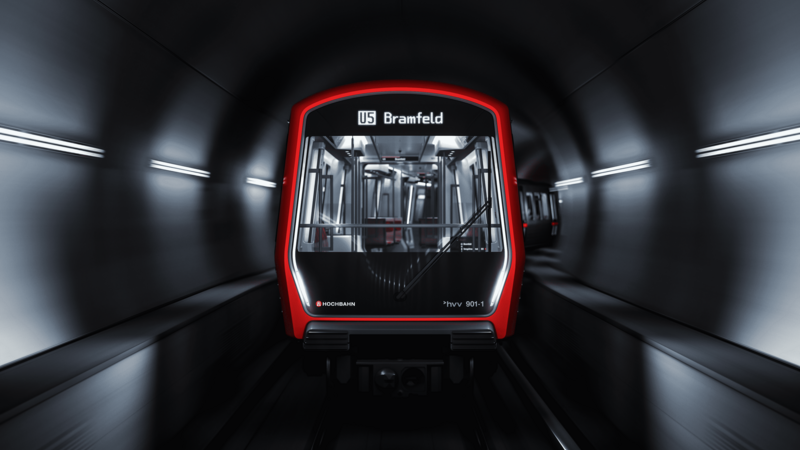
Hamburger Hochbahn investing record EUR 2.8 billion
